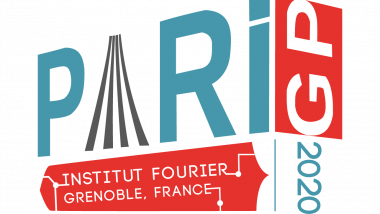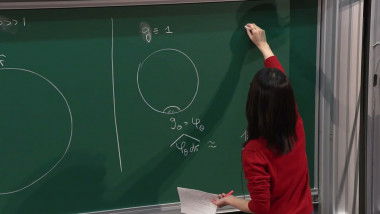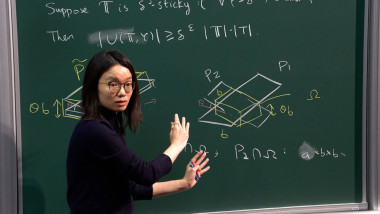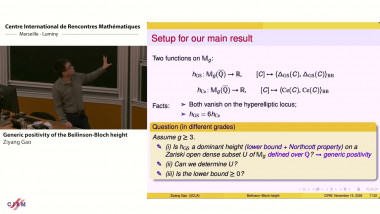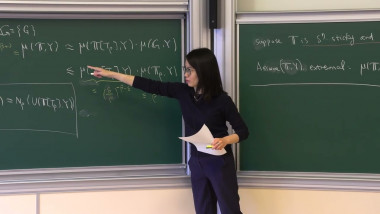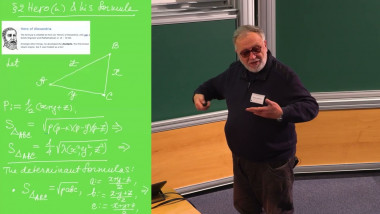Some problems I’d like solved, from a user of computer algebra
By Alan Sokal
Appears in collection : 2023 - T3 - WS3 - Computer algebra for functional equations in combinatorics and physics
A matrix $M$ of real numbers is called $\textit{totally positive}$ if every minor of $M$ is nonnegative. Gantmakher and Krein showed in 1937 that a Hankel matrix $H = (a_{i+j})_{i,j≥0}$ of real numbers is totally positive if and only if the underlying sequence $(a_n)_{n \ge 0}$ is a Stieltjes moment sequence, i.e.~the moments of a positive measure on $[0, ∞)$. Moreover, this holds if and only if the ordinary generating function $\sum_{n=0}^\infty a_n t^n$ can be expanded as a Stieltjes-type continued fraction with nonnegative coefficients. So totally positive Hankel matrices are closely connected with the Stieltjes moment problem and with continued fractions. Here I will introduce a generalization: a matrix $M$ of polynomials (in some set of indeterminates) will be called $\textit{coefficientwise totally positive}$ if every minor of $M$ is a polynomial with nonnegative coefficients. And a sequence $(a_n)_{n \ge 0}$ of polynomials will be called $\textit{coefficientwise Hankel-totally positive}$ if the Hankel matrix $H = (a_{i+j})_{i,j \ge 0}$ associated to $(a_n)$ is coefficientwise totally positive. It turns out that many sequences of polynomials arising naturally in enumerative combinatorics are (empirically) coefficientwise Hankel-totally positive. In some cases this can be proven using continued fractions, by either combinatorial or algebraic methods; in other cases this can be done using a more general algebraic method called $\textit{production matrices}$. However, in a very large number of other cases it remains an open problem. Along the way I will mention some problems in computer algebra, the solution of which would be helpful to this research.
